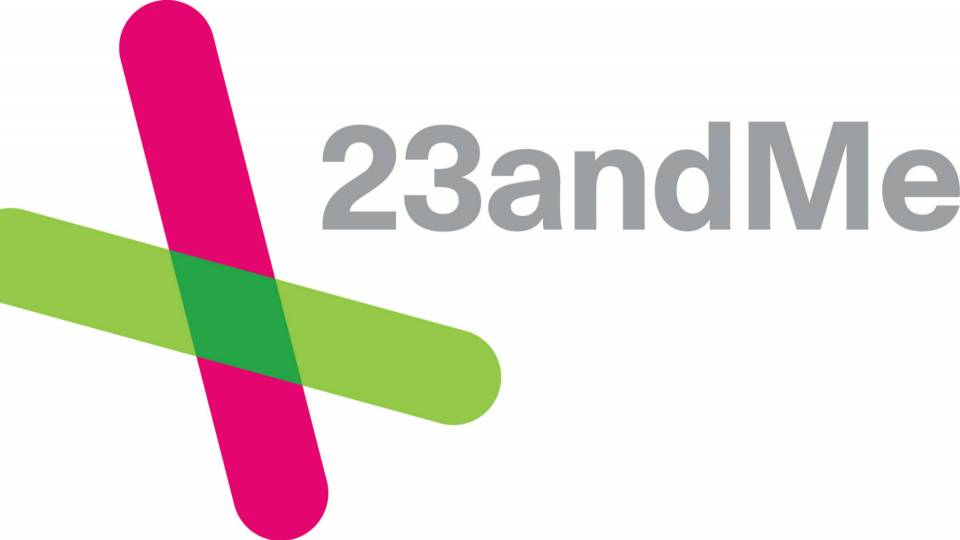Of Course 23andMe's Plan Has Been to Sell Your Genetic Data All Along
Today, 23andMe announced what Forbes reports is only the first of ten deals with big biotech companies: Genentech will pay up to $60 million for access to 23andMe's data to study Parkinson's. You think 23andMe was about selling fun DNA spit tests for $99 a pop? Nope, it's been about selling your data all along.
Since 23andMe started in 2006, it's convinced 800,000 customers to hand over their DNA, one vial of spit at a time. Personal DNA reports are the consumer-facing side of the business, and that's the one we're most familiar with. It all seems friendly and fun with a candy-colored logo and quirky reports that include the genetic variant for asparagus pee.
But 23andMe wasn't going to find a big business by selling spit kits at the cut rate of $99. Instead, it's always been about enticing customers to hand over their DNA sequences along with details of their lives in a questionnaire to build a giant database—one that academic researchers and biotech companies alike are, well, salivating over.
Big data has—excuse the metaphor—been in 23andMe's DNA from the beginning. The company was founded by Anne Wojcicki, who's married to (though now separated from) Google co-founder Sergey Brin. Last year, Wojcicki told the New York Times that the inspiration for 23andMe came from watching Google: "I remember in the early days of Google, Larry [Page] would say, 'I just want the world's data on my laptop.' I feel the same way about health care. I want the world's data accessible."
While Wojcicki has been open about her larger ambitions for 23andMe, none of that language is apparent in the marketing for its DNA test kits to customers—for sneaky but obvious reasons. Its privacy policy notes that it will share aggregated data to third parties (read: sell to pharma and biotech companies) for scientific research if customers sign a consent document. Wojcicki told the San Jose Mercury News that 85 to 90 percent of 23andMe's customers do.
This particular Genentech deal for Parkinson's is actually limited in scope, though it is a harbinger of things to come. Wojcicki and Brin have been vocal about advocating for Parkinson's research in the past, according to Forbes, and this deal involves the whole genome sequencing of 3,000 patients or their immediate relatives. Because Genentech is interested in individual-level information, 23andMe would need additional consent from these 3,000 customers. Genentech will pay $10 million to start and up to $50 million more if benchmarks are met down the line.
This single deal with Genentech, with more pharma company deals to come it seems, already represents a big chunk of 23andMe's revenue. Likening 23andMe to Google is uncomfortably apt. If you're paying a cut rate to have 23andMe sequence your DNA, you are 23andMe's product.
If there’s a gene for hubris, the 23andMe crew has certainly got it. Last Friday the U.S. Food and Drug Administration (FDA) ordered the genetic-testing company immediately to stop selling its flagship product, its $99 “Personal Genome Service” kit. In response, the company cooed that its “relationship with the FDA is extremely important to us” and continued hawking its wares as if nothing had happened. Although the agency is right to sound a warning about 23andMe, it’s doing so for the wrong reasons.
Since late 2007, 23andMe has been known for offering cut-rate genetic testing. Spit in a vial, send it in, and the company will look at thousands of regions in your DNA that are known to vary from human to human—and which are responsible for some of our traits. For example a site in your genome named rs4481887 can come in three varieties. If you happen to have what is known as the GG variant, there is a good probability that you are unable to smell asparagus in your urine; those blessed with the GA or AG varieties are much more likely to be repulsed by their own pee after having a few spears at Spargelfest.
While the FDA concentrates on the question of whether 23andMe’s kit is a safe and effective medical device, it is failing to address the real issue: what 23andMe should be allowed to do with the data it collects. For 23andMe’s Personal Genome Service is much more than a medical device; it is a one-way portal into a world where corporations have access to the innermost contents of your cells and where insurers and pharmaceutical firms and marketers might know more about your body than you know yourself. And as 23andMe warns on its website, “Genetic Information that you share with others could be used against your interests. You should be careful about sharing your Genetic Information with others.”






















